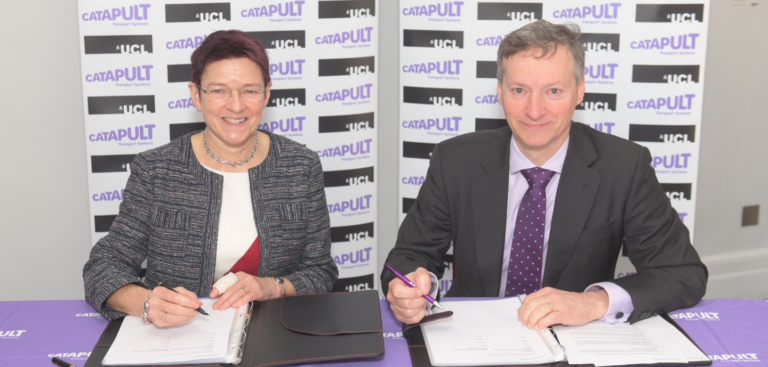University College London (UCL) and the Transport Systems Catapult have signed a Deep Academic Alliance agreement that will see them working together to develop and implement world leading intelligent transportation solutions.
The three-year strategic collaboration is part of a Transport Systems Catapult program designed to help universities more closely align their transportation-related research with commercial opportunities and the needs of industry and government.
The agreement with UCL will focus on maximizing the opportunities arising from UCL’s status as the only UK member of MOBiLus, a pan-European consortium working to set up an international innovation community for urban mobility after winning funding in December 2018 from the European Institute of Innovation and Technology.
The Transport Systems Catapult will also help support the development and promotion of UCL’s new Person-Environment-Activity Research Laboratory (PEARL) – a configurable simulation space that can be used to create life-like mock-ups of large-scale vehicles, urban environments and buildings such as train stations and airport terminals.
The agreement between UCL and the Transport Systems Catapult was formally signed at UCL’s Bloomsbury Campus by Dr Celia Caulcott and Paul Campion.
Dr Caulcott, vice-provost of enterprise, UCL, said, “As London’s global university, a key part of UCL’s mission is to create more connected, sustainable cities both here in the capital, across Europe and further afield.
“This deep academic alliance with the Transport Systems Catapult will help to align UCL’s existing and long-standing expertise in transport research with the needs of industry, government and of course citizens.”
Prof. Nick Tyler, director of the Centre for Transport Studies (CTS), UCL, said, “UCL greatly welcomes the opportunity to form a deep alliance with TSC around innovation at the intersection between mobility and the built environment.”





